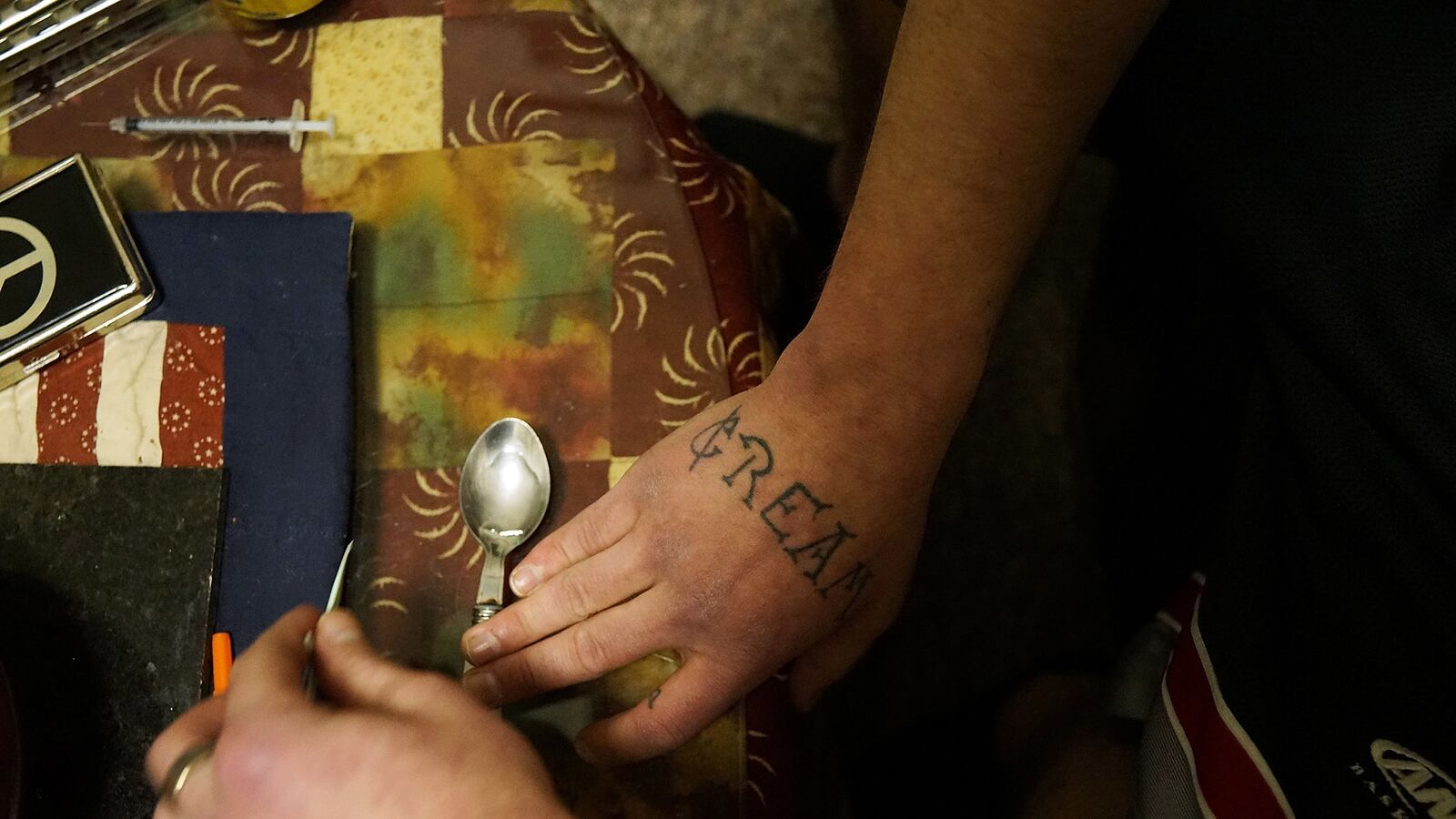CLEVELAND—Karl Jones didn’t have insurance when he needed treatment for Crohn’s disease, so he turned to opiates to kill the chronic pain.
Ten years later, he now has health care coverage with Medicaid in Ohio, and gets the prescriptions and treatment to manage Crohn’s regularly. Jones has been mostly sober for almost a year, staying at a drug treatment center house in Cleveland.
“I am not saying my illness is totally responsible for my drug addiction,” Jones said, “but I know that when I started on opiates it was to address the pain I was dealing with from Crohn’s. But I get the treatment now with Medicaid, and if I wasn’t getting the medical treatment now, I’d have a hard time staying sober.”
Experts say Jones is among those who will be hardest hit by the Medicaid cuts Republicans want to impose on the country. A study by Eric Seiber, a professor at the College of Public Health at Ohio State University, found those receiving drug-addiction treatment through Medicaid in Ohio, Kentucky, and West Virginia are disproportionately white, middle-aged, male, and with a high school diploma or less education.
In other words, Trump supporters.
“We don’t know how many will be pushed out right now, but you know that the single males will bear the brunt of this,” Seiber told The Daily Beast. “The older male demographic was the most uninsured before Obamacare, and it looks like the replacement might put them back into uninsured. And not having health care does have a direct effect on drug addiction, because the single males are the one who have the addiction problem more than any other group.”
The expansion of Medicaid in Ohio and 30 other states under the Affordable Care Act has brought coverage to 14.5 million people who were too poor for private insurance but not poor enough for Medicaid.
Under the current law, eligible individuals under Medicaid have an entitlement to coverage with no pre-set limit. The GOP’s American Health Care Act would give states a predetermined block grant or per-capita limit. A Kaiser Foundation study found that while Medicaid currently spends about $5,000 per enrollee now, it would drop to about $3,000 per person under the new law.
If the states go over that amount, they would have to find cuts from some groups—the elderly, the disabled, children, women, men—and take from some groups to pay for others.
Nationally, 1.8 million people would lose those subsidies if Obamacare were repealed, according to an estimate by health care economist Richard G. Frank of the Harvard Medical School and Sherry Glied of New York University.
“You have to take money from one group to keep the coverage for other groups,” Frank said. “If you have older Americans and children needing care over on one side, and males with drug addiction over on the other side, which ones are going to get the funding?”
Medicaid is essential to battling the epidemic that is estimated to kill 50,000 Americans this year. Ohio is one of the hardest hit states, tallying the third most opioid drug overdoses among all states in 2015, with about 3,300 or 29.9 deaths per 100,000 residents.
State Senator Jay Hottinger’s district is in the bulls-eye of the opioid crisis and his father-in-law is an alcoholic.
“I remind people we in Ohio are among the largest rates of opioid drug addiction in the country and we are one of the largest states in population as well,” the Republican said. “Everyone in Ohio knows someone who is addicted, and we know we are in the middle of a drug addiction epidemic this country has not seen before.”
Senator Rob Portman said in a statement last week that the House health care bill “does not do enough to protect Ohio’s Medicaid expansion population, especially those who are receiving treatment for heroin and prescription drug abuse.”
About 32 percent of the state’s enrollees have been diagnosed with substance abuse or dependences and received treatment paid by Medicaid, according to a report by the governor’s office. Fifty percent of the prescriptions written in Ohio to treat addiction went to Medicaid enrollees. Some even were able to get their rehab programs paid for by Medicaid.
“Historically most states have been very stingy in covering addictions, but the ACA forced their hand on it,” Frank said.
Jacqueline Rivera, executive director the rehab house where Karl Jones is living, said Medicaid pays for more than drug treatment for addicts.
“Before the Medicaid expansion, we had a hard time getting our addicts tested and treated for Hepatitis C, internal organ failures, teeth getting fixed, just basic things that might help them recover and move back into society,” she said. “And I’m afraid drug addiction will become a pre-existing condition.
“Getting them treatment through Medicaid is one of the first things we do with the addicts here,” Rivera continued. “Getting rid of that will make it so much more difficult for people to get clean. It’s not like you drop someone off at a rehab center, come back a month later, and everything is fine. It doesn’t work that way.”






